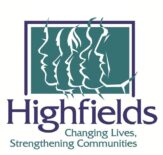 For many teenagers, sports like basketball or football are a big deal. They play on their school or community teams, dedicate themselves to practice and some of their biggest goals might be to set a personal record or to go with their team to a championship. But to others, sports play a much bigger role.
For many teenagers, sports like basketball or football are a big deal. They play on their school or community teams, dedicate themselves to practice and some of their biggest goals might be to set a personal record or to go with their team to a championship. But to others, sports play a much bigger role.
To Darryl Scott, the manager of operations in Highfields' Residential Treatment Program, offering sports teams is a teaching opportunity they can use to reinforce lessons the residents learn at Highfields, like goal setting and dedication. Scott said many residents come to Highfields with low self-esteem and don't like to participate when things start to get tough.
"It breaks down mental barriers that are set in them before they get here," he said. "Many of the students think they can't accomplish anything. We teach them it's all about progress. Everyone starts at different points."
He also said joining a sport, whether it's at Highfields or back in their community, is a good outlet for the boys. It keeps them dedicated to something positive, rather than turning to destructive behaviors.
"Most of our kids are in trouble so they're not on their high school or community teams," he said. "Hopefully they'll see the fun in being a part of a team. When you're at practice, you're not on the streets."

The residents see the value in being a part of a team, too. They know that focusing on basketball will keep them away from negative behaviors.
"I like playing basketball so I can stay out of trouble," said Airick Cherry, one of Highfields' residents who joined the basketball team.
Another student said working hard at basketball could help him get into college. He said when he leaves Highfields, he will concentrate on basketball and school and stay away from the behaviors that have gotten him into trouble in the past.
"It's good to play basketball because you might get a scholarship," he said. "You might even go to the NBA."
